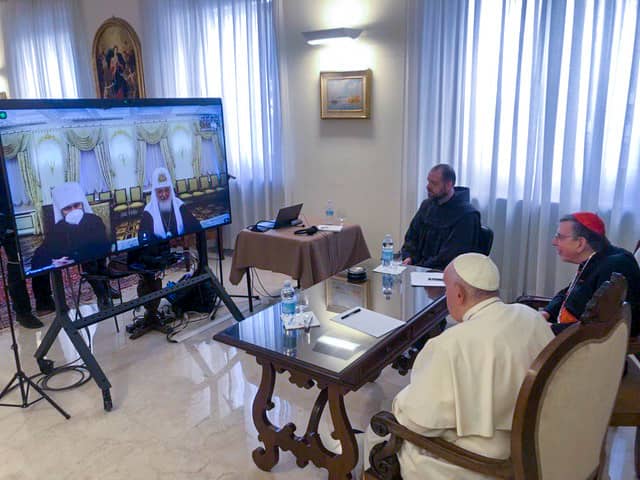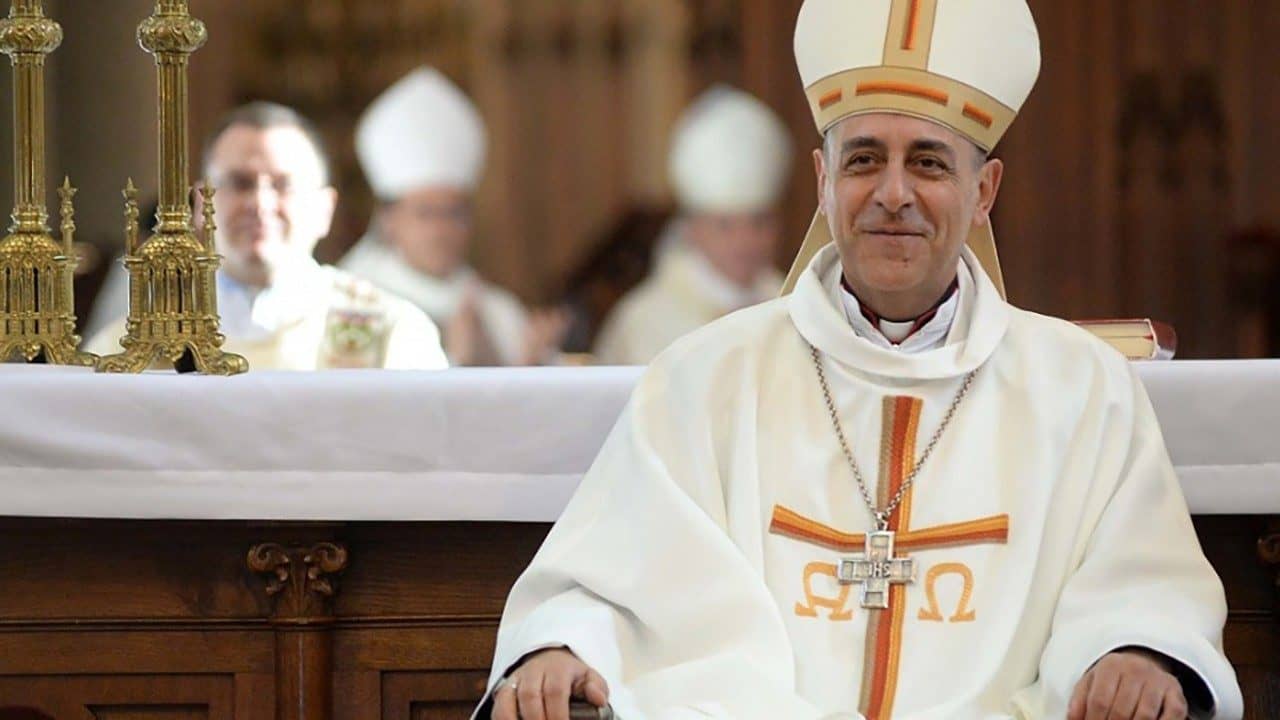ROME – For anyone concerned about religious freedom worldwide, and especially Christians alarmed about the rising global tide of persecution directed at their fellow believers, it’s essentially impossible to overstate the significance of the news Wednesday that Asia Bibi has been absolved and set free by Pakistan’s Supreme Court.
For anyone not familiar with the story, Aasiya Noreen Bibi, better known to the world as “Asia Bibi,” is almost certainly the most famous 47-year-old illiterate Punjabi farm worker and mother of five on the planet.
Bibi first came onto the radar screen back in June 2009, when she was arrested and charged with the offense of “blasphemy” under Pakistani law. As she would later describe it, the dispute began when Bibi, a Catholic who regularly attended the Church of St. Teresa in the nearby town of Sheikhupura, was harvesting berries to support her family in scorching 100-degree heat. She became thirsty and drank from a well in her small village, thereby defiling the water source in the eyes of local Muslim women.
As things escalated, she and some of the Muslim women began trading barbs about Jesus and Muhammad. Although Bibi insisted she meant no disrespect, the other women used her words as a pretext to whip up outrage and have her arrested.
Bibi remained in jail while an investigation and trial unfolded, which ended with her being sentenced to death by hanging in November 2010. To add insult to injury, she was also fined 300,000 Pakistani Rupees, the equivalent of about $3,000, a staggering sum by rural standards. After her conviction, she spent eight years on what amounts to death row, for the most part in isolation.
Against all odds, Bibi’s fate aroused deep feelings both in Pakistan – where two prominent Pakistani politicians, one Christian and one Muslim, have gone to their deaths for supporting Bibi and for opposing the blasphemy law – and abroad. The case went viral and has become a cause célèbre in Christian activist circles around the world.
Documentaries have been made about Bibi, concerts organized in support of her, web sites and twitter campaigns mobilized, books published, and petitions with hundreds of thousands of signatures have been delivered to the Pakistani authorities.
As lawyers, judges and politicians ponder her fate, fundamentalist forces in the country fought the international outrage. One mullah offered a reward of roughly $10,000 to anyone who kills her, either inside the prison or outside. That’s a princely sum by Pakistani standards, enough to purchase a three-room house with all the modern conveniences.
According to one survey, at least ten million Pakistanis say they would be willing to kill Bibi with their bare hands, either out of religious conviction, for the money, or both. Given the obvious threats, Bibi’s family went underground during her long legal journey, usually surfacing only outside Pakistan to appeal for international help.
Despite all that, the country’s Supreme Court set her free on Wednesday, two years after her case was scheduled to be heard but had to be delayed after one justice recused himself. The ruling, read out by Chief Justice Saqib Nisar, was remarkably forceful, referring to the case against Bibi as “nothing short of concoction incarnate.”
It even turned lyrical at one point, quoting Shakespeare’s King Lear to the effect that Bibi was “more sinned against than sinning.”
It should be said that however obvious a legal conclusion that may seem, it required great courage. Pakistan’s independent judiciary has long been a bulwark against the fundamentalist tide, and members have paid a price; since 2007, at least seven judges have been killed in violent attacks, and within two hours of the Supreme Court’s decision on Wednesday, Pakistan’s Islamist party called for these justices to be slain as well.
Aside from the obvious significance of the acquittal for Bibi and her family, here are three other immediate take-aways.
First, it’s an important victory for efforts to eliminate blasphemy laws around the world.
According to an analysis by the Pew Research Center’s Forum on Religion & Public Life, as of 2011 nearly half the countries in the world, 47 percent, have laws or policies that criminalize apostasy, blasphemy, or defamation of religion. Anti-apostasy and anti-blasphemy laws tend to be most common in the Middle East, North Africa, and Asia Pacific, and in the eyes of critics, they usually function to penalize religious minorities at the expense of whatever the socially dominant religious tradition may be.
Even a few Western countries still have vestigial blasphemy laws on the books. Seventy percent of Irish voters just this past Sunday, for instance, voted to remove a constitutional prohibition on blasphemy. In Italy, blasphemy has been widely decriminalized since 1999 but blasphemy against “the deity” is still considered an administrative offense subject to a fine of around $350, and it’s more or less banned on public TV.
RELATED: Irish voters remove blasphemy punishment from constitution
Second, the result proves that international pressure can work. Had it not been for the global campaign on behalf of Bibi, it is not only unlikely the country’s political leadership would have taken the case so seriously, it’s also improbable that the Bibi family would have found the resources or stamina to keep going for almost a decade.
If one ever despairs over being able to make a difference when it comes to anti-Christian persecution, Bibi’s liberation proves it’s not impossible.
Finally, there’s an important third lesson: Officialdom does not have to lead the way.
While the Catholic bishops of Pakistan have supported Bibi’s appeals over the years and challenged the blasphemy laws, her family has long complained they haven’t been nearly aggressive enough, sometimes practicing a strategic silence at key points. That’s in part because a Catholic pastor in Pakistan has to think about the possible implications of whatever he says or does for the entire community – knowing that if they inflame the radicals too much, they may end up making things worse.
“Especially you in the West, you don’t know what the atmosphere is like,” Cardinal Joseph Coutts of Pakistan told me in June.
“You’ve got to understand the atmosphere, the kind of society we’re living in. These extremists, they don’t hesitate, not only to kill, but also to be killed. They don’t hesitate,” Coutts said, by way of explaining why discretion is sometimes the better part of valor.
Coutts said he’s not primarily thinking about his personal safety, but also the fallout for the people he serves.
“What I say will not only affect me. When you’re in a certain position, what you say affects who you represent. And we’ve seen enough of that,” he said.
Likewise, advocates sometimes have complained that the Vatican hasn’t used its diplomatic leverage enough to help Bibi, preferring not to make too many waves in its relationship with one of the most influential Islamic nations in the world. Pope Francis did receive Bibi’s family earlier this year, but in general few would say the Vatican has been leading the charge for her liberation.
Instead, it was other individuals and organizations that led the way, including “Aid to the Church in Need,” a papal foundation created in Holland after World War II that supports persecuted Christians around the world, and an informal network of other Christian activists and advocacy groups that drew attention to Bibi’s cause, backed her legal appeals, provided support for her family, and otherwise helped make Wednesday’s outcome possible.
For all those frustrated when they perceive the Church’s powers to be sitting on the sidelines at a critical moment, perhaps the conclusion is this: Let them stay on the sidelines if they want, but that doesn’t always mean the game is lost.

















